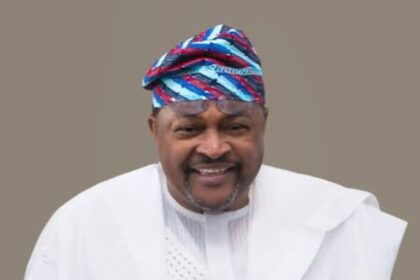Orji Uzor Kalu, senate chief whip, says Obafemi Awolowo, the late former premier of the western region, told him he refused to work with the Ibrahim Babangida military regime because he never trusted his government.
Kalu, who was governor of Abia state from 1999 to 2007, also said he turned down an offer to lead a campaign seeking to keep Ibrahim Babangida as military head of state.
In his newly released autobiography, ‘My Life’, the former governor of Abia state recalled how top officials of the Babangida regime had contacted him to lead the sit-tight campaign but he declined as he was “guided by national interest”.
Kalu said Awolowo had rejected the invitation of the political bureau set up by Babangida after they asked him to join in their search for recommendations regarding Nigeria’s political future.
The author said he saw the sage’s refusal as a red flag and decided to visit him to find out why.
“He told me he did not trust the military and that nothing in his crystal ball suggested that the military was sincere about bringing the country back to civil governance,” Kalu wrote of his meeting with Awolowo.
“I learnt from him that there existed two types of the military which he described as professional and mercenary military.
“He told me the military government was of the latter type (and) assured me that he had not seen anything in the IBB regime to assure him of their messianic mission.”
Babangida became military president in August 1985 following a coup that ousted the then head of state, Muhammadu Buhari.
He promised to hand over power to civilians in 1990 under his first transition to democracy programme before later changing the dates — first to 1992 and then 1993.
He then annulled the June 12, 1993 presidential election, further confirming fears that he wanted to sit tight in office.
In the autobiography, a copy of which was made available to TheCable, Kalu, who was a member of the house of representatives at the time, said he “personally resisted every pressure” to prolong that regime even against the decision of the National Republican Convention (NRC), his party at the time.
He wrote: “I was extremely disgusted when the 16 state governors who were elected on the platform of our party paid a solidarity visit to IBB in Aso Rock and pledged their unflinching loyalty to the military leader.
“Perhaps, it was a strategy for keeping their governorship seats; perhaps, which is more likely, they were responding to some irresistible inducement.
“Indeed, legislators on both sides received ‘encouragement’ from both Abiola and the military government for support.
“Abiola’s battle to win the support of the National Assembly meant a lot of money for the legislators. The government also sent its lobbyists to work at the National Assembly with a huge financial arsenal.
“They practically invaded the legislative buildings ‘persuading’ lawmakers to support the annulment and endorse the president for another two to four years more to give him a chance to clear the mess created by the annulment.
“I was contacted by these lobbyists, who were actually functionaries of government, who wanted me to be the arrowhead of the campaign for prolongation of the transition period, and by implication extension of Babangida’s stay in office. I turned them down.
“I told them that if oga (Babangida) wanted me to help him stay further in power, he should tell me himself. I must say that despite my closeness to the president, he never mentioned to me that he wanted to stay further.
“So, I took that to mean that he did not really want to campaign for the extension of his tenure but that some of his top officials were doing so on his behalf as cover for their own selfish motives.”
Lagos Govt Breaks Silence on Shooting at Lekki Toll Gate, Sends Directive to Army



